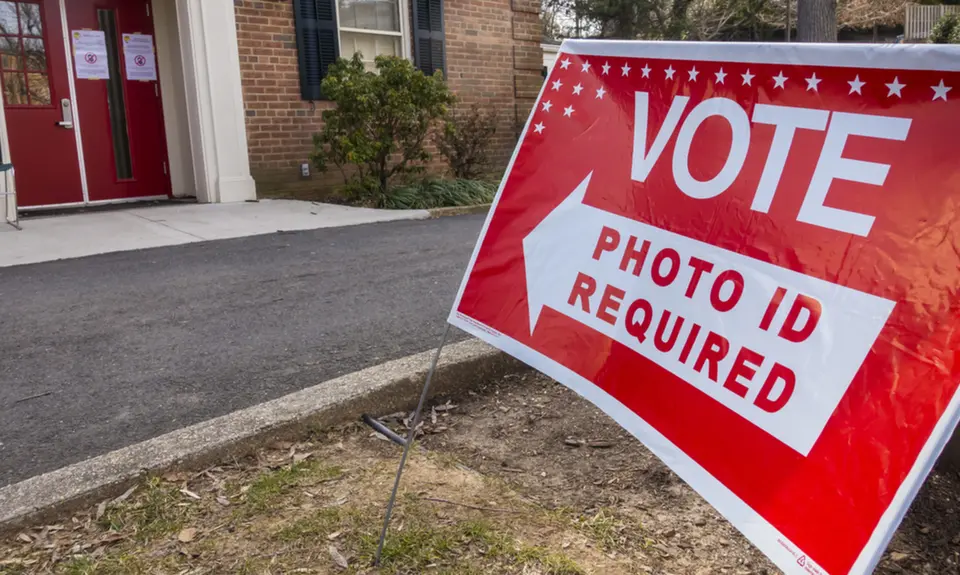“Confirmed Judges, Confirmed Fears” is a blog series documenting the harmful impact of President Trump’s judges on Americans’ rights and liberties. Cases in the series can be found by issue and by judge at this link.
Trump Fourth Circuit judges Marvin Quattlebaum and Julius Richardson reversed a district court and ruled that the court must reconsider state Republican legislative leaders’ efforts to intervene in and help defend against a challenge to a North Carolina voter ID law. The August 2020 case is North Carolina State Conf. of the NAACP v. Berger.
In late 2018, the North Carolina NAACP filed a federal court challenge to a voter ID law just passed by the state legislature, over the veto of the Governor. The NAACP contended that the law violated the Voting Rights Act because of its disparate impact on minorities and violated the Constitution. As usual in such cases, the complaint named the chair and other members of the state board of elections and the Governor. Claiming that the state’s executive branch would not adequately defend the law, the Republican leaders of the state House and Senate moved to intervene to help defend the law.
The district court denied the motion in June 2019, finding that the Governor and Attorney General were required to defend the law and were doing so, and allowing the Republican legislators to participate by filing friend-of-the-court briefs. The Republican legislators renewed their motion in July. When it was not acted upon quickly enough for them, they tried unsuccessfully to get the Fourth Circuit to immediately order that their motion be granted. After the district court again rejected their motion, the Republican legislators appealed.
In a 2-1 decision written by Trump judge Quattlebaum and joined by Trump judge Richardson, the Fourth Circuit reversed the district court. The majority pointed to a recent state statute that declares that both the legislative and executive branches “constitute” the state of North Carolina when a state law is challenged in federal court, and requests that federal courts permit both branches to participate in such litigation. The majority then turned to the requirements for intervention as of right under the Federal Rules of Civil Procedure, including the provision that such intervention is not permitted if existing parties already “adequately represent” the interests of the party that wants to intervene. The majority ruled that the lower court was wrong in requiring the Republican legislators to make a “strong showing” that the Attorney General would not “adequately represent” the state’s interests, and noted that the Republican legislators were claiming inadequacy of representation based on their disagreement with some of the Attorney General’s “litigation decisions” as not vigorous enough, as well as the fact that both the Attorney General and the Governor opposed the legislation. The majority vacated the district court’s decision and ordered that it consider “all the evidence” to determine whether the Republican legislators had met the “minimal burden” of demonstrating some “adversity of interest, collusion or malfeasance” in order to justify their intervention.
Judge Pamela Harris strongly dissented. She explained that the new state law established only that the Republican legislators have an interest in the litigation, not that the Attorney General was providing inadequate representation, and explained that the district court’s “careful review” of the Attorney General’s conduct of the litigation shows that there is “no basis’ to make the “extraordinary finding” that the state Attorney General could not adequately defend the constitutionality of a state law, which he is required to do by state law.
Judge Harris went on to discuss a recent similar case in the Seventh Circuit, where the court upheld the denial of a request by Republican state legislators to intervene to help defend against a challenge to a restrictive abortion law. In that case, even conservative judge Diane Sykes agreed that there was a presumption that a state Attorney General would adequately defend a state law, and that presumption could not be overcome by Republican legislators’ “political and policy differences over abortion regulations” and “disagreements about litigation strategy.” The same result should apply here, she continued, particularly since the district court had already found there was “no evidence” to support the Republican legislators’ “conclusory speculation” that the Attorney General’s policy preferences would lead him to fail to “robustly litigate” to defend the state law. Particularly in light of the district court’s determination that permitting intervention by the Republican legislators would result in “unnecessary complications and delay”, Judge Harris concluded, it was clear that the district court did not abuse its discretion when it twice decided that the Attorney General was adequately discharging his “statutory duty” to defend the voter ID law.
The same panel of three Fourth Circuit judges held oral argument on September 11 to consider the state’s appeal, brought by the Attorney General, of a preliminary injunction against the voter ID law. The August decision by Quattlebaum and Richardson unfortunately suggests how they are likely to rule on that appeal. In any event, their decision to defer to the Republican legislators and create unnecessary delay and complications in the voter ID litigation, as well as to set a precedent for other right-wing legislators who try to second-guess the conduct of state Attorneys General, is troubling.
